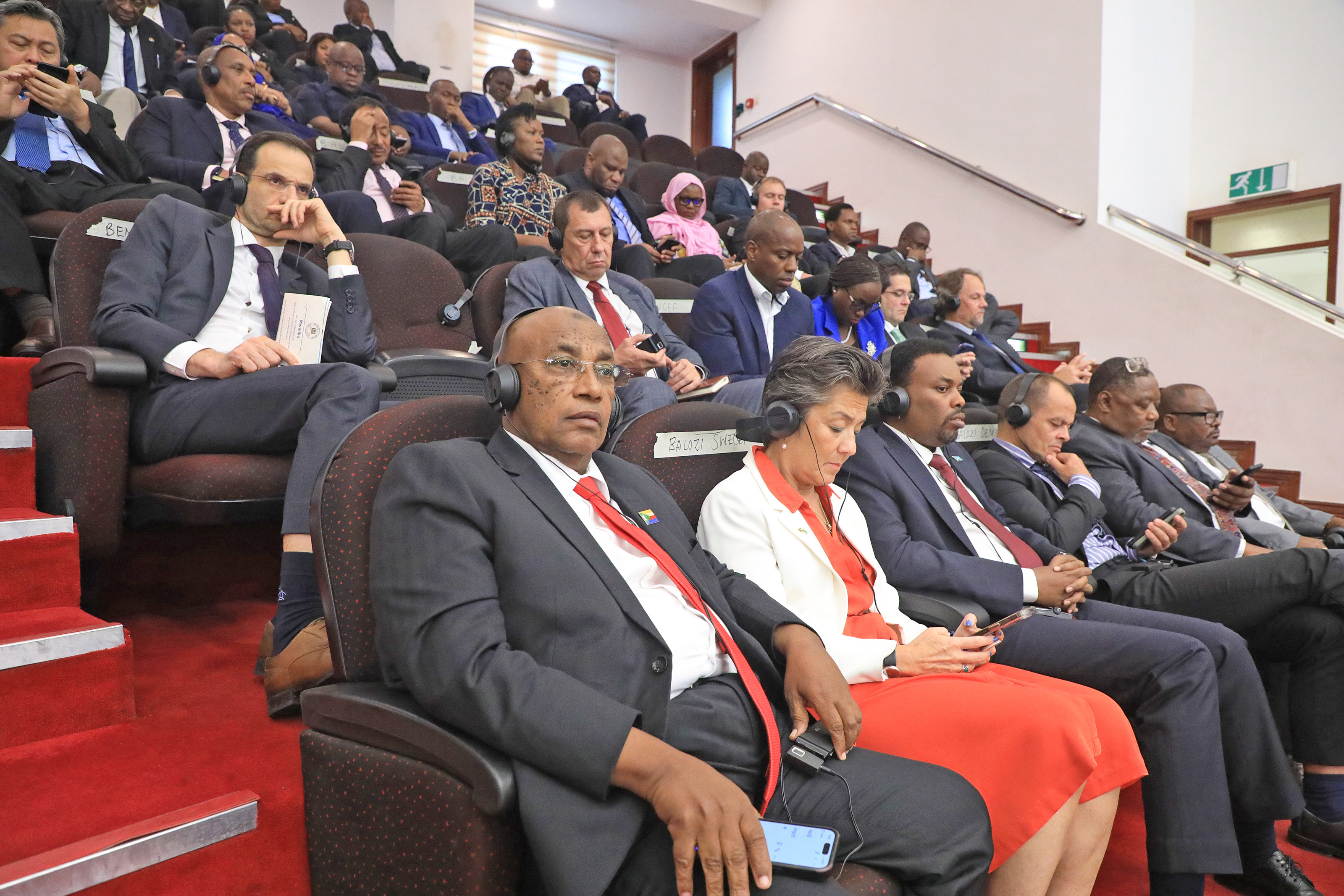African Union-China relations enter crucial stage

What you need to know:
- Chinese President Xi Jinping sent a congratulatory message to the 36th AU Summit and pledged that he stands ready to work with leaders of African countries to build a high-level China-Africa community with a shared future
On February 18 and 19, 2023, African leaders gathered in Addis Ababa for the 36th Ordinary Session of the Assembly of the Heads of State. This year marks the 60th anniversary of the Organisation of African Unity (OAU), the predecessor of the African Union (AU). They routinely met at the AU Conference Centre and Office Complex (AUCC), a state-of-the-art building towering the skies of the Ethiopian capital.
Funded and built by China, the USD200-million complex is the single most important physical symbol of Africa-China cooperation at the continental level. China is also funding and building the Africa Centres for Diseases Control and Prevention (CDC) headquarters in Addis Ababa, yet another manifestation of strong relations between AU and China.
On the opening day of the Summit, Chinese President Xi Jinping sent a congratulatory message to the 36th AU Summit, commending the regional body for uniting and leading African countries to stand up to global challenges, accelerating the development of the African Continental Free Trade Area, and playing an important role in mediating hot issues in Africa, which according to Xi has boosted Africa’s international status and influence. Xi pledged that he stands ready to work with leaders of African countries to build a high-level China-Africa community with a shared future.
Since the launching of the Forum on China-Africa Cooperation (FOCAC), Beijing has stepped up diplomatic engagement with Africa. In the era of what has come to be known as “Africa+1 Summits,” none could be said to be as comprehensive and successful as FOCAC. China’s multilateralism in Africa has long history. One needs to recall the Afro-Asian solidarity of the 1950s-1960s, particularly the Bandung Conference in which China’s role was significant. However, AU-China relations in the early years are probably best explained by Beijing’s support for liberation processes in the African continent. According to one source, by 1972, China’s military aid to the OAU accounted for 75 percent of total military aid given to the organisation’s African Liberation Committee.
China’s African policy in the past, however, should be understood in the context of the politics of the time. Among other things, Beijing aimed at safeguarding the one-China policy by isolating Taiwan diplomatically, coping with the Sino-Soviet split and countering Western imperialism. These motives are still relevant today but China is no longer isolated and weak. The drivers of its African policy have thus been impacted by its increasing appetite for raw materials and the desire to become a more influential international player.
At the 20th National Congress of the Communist Party of China (CPC) in October 2022, the Chinese path to modernisation was put forward in five points: modernisation of a big population, modernisation for common prosperity, modernisation of material and cultural-ethical advancement, modernisation of harmony between humanity and nature, and modernisation of peaceful development. These aspirations are centred around the idea of the rejuvenation of the Chinese nation.
Meanwhile, the AU has 7 aspirations in its Agenda 2063 blueprint. These aspirations are: a prosperous Africa; an integrated continent; promotion of democracy, good governance and human rights; a peaceful continent; cultivation of a strong cultural identity, shared heritage, values and ethics; people-driven development; and a strong Africa which is an active influential global player.
There are areas of mutual interest for both parties. The first is about common prosperity through people-centred development. Africa needs to attain second liberation, i.e. economic development. Similar to the Chinese imagination, Africa’s development has to be inclusive and sustainable. Second, both parties believe that culture is key to development. Some African scholars have for many decades argued that culture is the missing link in the Africa’s development plan.
Lastly, China’s overall objective of rejuvenating the Chinese nation mirrors Africa’s own aspiration of becoming an influential global player. Currently, there is a growing international consensus that Africa needs more representation and stronger voice in multilateral organisations such as the United Nations. The support from major international actors like China can only help Africa.
This year’s summit was under the theme: Year of AfCFTA: Acceleration of the African Continental Free Trade Area Implementation. As African actors deliberate on continental trade, they will be mindful of China’s role in regional trade in the last two decades. The Chinese-built roads, ports, airports, railways and communication networks have greatly enhanced connectivity in Africa, a much-needed requisite for the continental and sub-regional trade.
Yet trade imbalance in favour of China is one of the challenges facing Africa today. This is despite China’s recent balancing measures by further opening its market to African goods. To overcome this and other challenges there needs to be more coordinated policies between African regional and sub-regional organisations on the one hand and China on the other.





